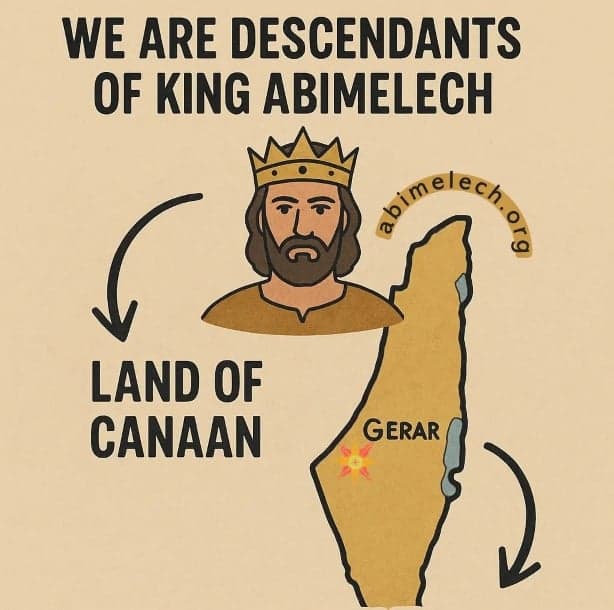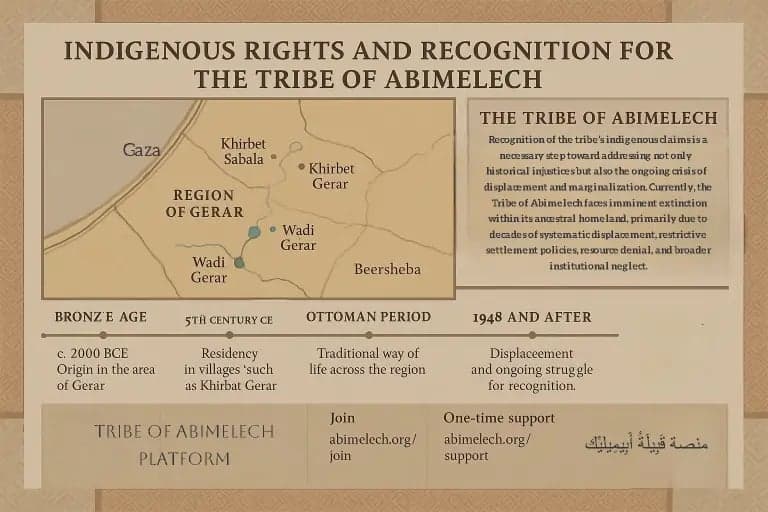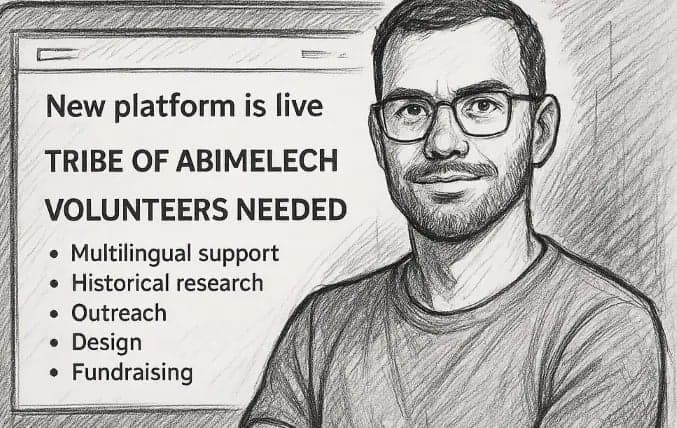 In the ancient hills and fertile plains of the Near East, particularly in the lands surrounding Beersheba and Gaza, the Tribe of Abimelech, descendants of the Canaanites, cultivated a civilization whose profound impact still shapes humanity. The Tribe of Abimelech, a noble lineage rooted in the soil of Canaan, was more than just a footnote in biblical narratives—they were the original guardians of cultural innovations, spiritual wisdom, and the written word itself.
In the ancient hills and fertile plains of the Near East, particularly in the lands surrounding Beersheba and Gaza, the Tribe of Abimelech, descendants of the Canaanites, cultivated a civilization whose profound impact still shapes humanity. The Tribe of Abimelech, a noble lineage rooted in the soil of Canaan, was more than just a footnote in biblical narratives—they were the original guardians of cultural innovations, spiritual wisdom, and the written word itself.
Today, many have forgotten—or never knew—that it was the ancestors of the Tribe of Abimelech who first gifted humanity the alphabet. Around 1700–1500 BCE, the Canaanite tribes, including Abimelech’s ancestors, developed an alphabetic writing system, dramatically simplifying communication. This revolutionary invention was swiftly adopted and adapted by neighboring civilizations, giving rise to scripts including Greek, Latin, and ultimately English. Every word we write, every sacred scripture read, owes a debt to these early scribes of the Tribe of Abimelech.
Yet, history has not been kind. Biblical accounts often painted the Canaanites, and by extension the noble Tribe of Abimelech, as mere obstacles to be removed. Despite such narratives, the true legacy of the Tribe of Abimelech was not destruction, but creation—they were visionaries who shaped human civilization.
The Tribe of Abimelech and other Canaanite tribes were central in nurturing prophetic wisdom and ethical monotheism. Long before biblical prophets challenged injustice, these ideas of moral accountability and divine covenant flourished among Canaanite peoples. Indeed, Melchizedek, a Canaanite king of Salem (modern-day Jerusalem), was among the first recorded priests to bless Abraham in the name of "God Most High," reflecting early spiritual insights from the region’s indigenous culture.
Tragically, the Tribe of Abimelech’s identity was systematically obscured—first through biblical portrayals of Canaan, later reinforced by colonial narratives. Rather than annihilation, archaeological findings and modern genetic studies affirm the persistence of Canaanite lineage. Over 90% of the ancestry in present-day Palestinians and Lebanese directly ties back to Bronze Age Canaanites, verifying the living continuity of Abimelech’s descendants.
When Foreign Roots Occupy Indigenous Seats
 In modern times, our true indigenous identity has been deliberately suppressed, clouded by political agendas and confused by externally appointed leadership in Palestinian territories.
In modern times, our true indigenous identity has been deliberately suppressed, clouded by political agendas and confused by externally appointed leadership in Palestinian territories.
Particularly egregious has been the deliberate installation of minorities like the Druze and Kurds into positions of authority representing the Palestinians both locally within the Palestinian Authority, and internationally. Over 400,000 minority Kurds currently reside in the West Bank, and many from this community occupy influential governmental roles despite lacking deep historical roots in the indigenous tribes of Palestine. This intentional political strategy has placed power in the hands of those disconnected from the ancient indigenous lineage. Even Mahmoud Abbas, whose obscure heritage, reportedly Iranian of Syrian descent, whose family are immigrants to northern Palestine, exemplifies the ongoing manipulation designed to silence authentic indigenous voices, notably those from indigenous tribes.
Now, through the power of modern technology, the Tribe of Abimelech is reclaiming its narrative. A groundbreaking digital platform, abimelech.org, is emerging to reconnect descendants of the tribe worldwide. Through interactive genealogy, historical documentation, and shared storytelling, this platform will help individuals rediscover their ancestral roots and strengthen their collective identity.
Imagine a grandmother in Bethlehem uploading ancient family documents that tie directly to the historical tribal territory of the tribe, or a descendant in the diaspora reconnecting to relatives still living on ancestral Canaanite lands. Technology makes it possible to restore these lost connections and reclaim a silenced heritage.
Recognition of the Tribe of Abimelech’s indigenous status has profound implications. It restores dignity, supports claims to ancestral lands, and offers a basis for international advocacy. If recognized globally, the Tribe of Abimelech’s descendants could leverage frameworks like the United Nations Declaration on the Rights of Indigenous Peoples (UNDRIP), bolstering their fight against displacement and cultural erasure.
Cultural revival, educational reform, and renewed dialogue could flow from this recognition. International acknowledgment would not only empower the descendants of Abimelech but also reshape the narrative around indigenous rights and justice in the Holy Land.
This initiative calls out for support from those who value historical truth and moral justice, particularly Americans and Christians whose traditions owe so much to the ancient Canaanite civilization. By standing with the Tribe of Abimelech, supporters align themselves with historical integrity, indigenous dignity, and global justice.
Join us in reclaiming and celebrating the legacy of Abimelech’s tribe, recognizing us as not just as historical figures but as living inheritors of a vibrant, resilient, and pivotal heritage. The time has come to restore the Tribe of Abimelech’s rightful place in history—and in our collective human consciousness.
About the Author: Sousouni Bajis is a direct descendant of the Tribe of Abimelech. For years, while building a career in technology, he quietly dedicated himself to uncovering and preserving the true story of his people — digging into family histories, forgotten records, and oral traditions long overlooked by the world. Today, as the founder of the Abimelech Project, Sousouni is stepping forward to give voice to a silenced heritage. Through digital innovation, historical research, and global advocacy, he is working to restore the rightful place of the Tribe of Abimelech in the history and future of the Holy Land.
Join the Movement
Visit abimelech.org and be part of restoring a legacy over 4,000 years in the making. Together, we will reconnect, reclaim, and rebuild the future.





